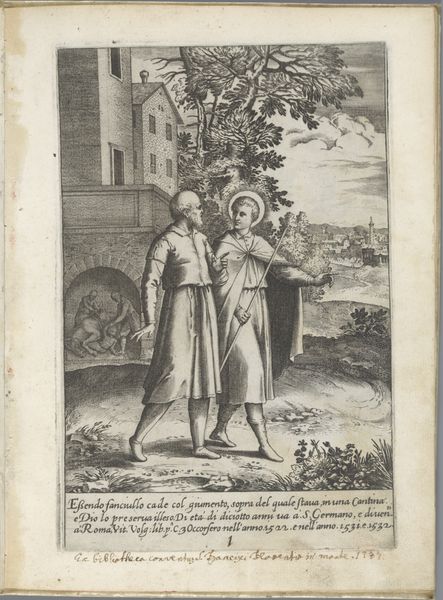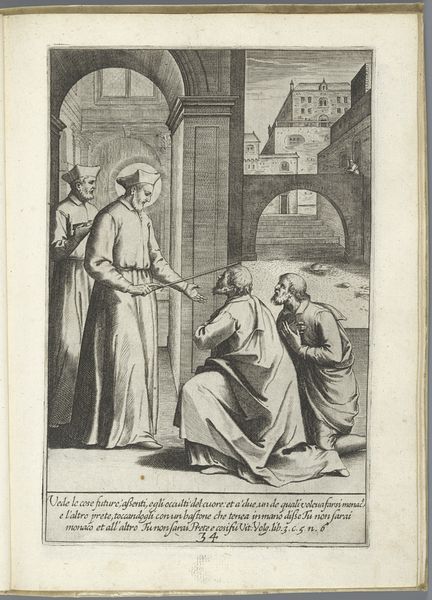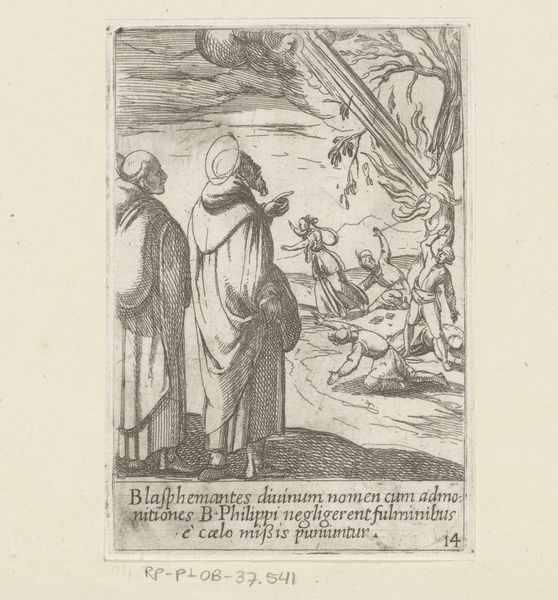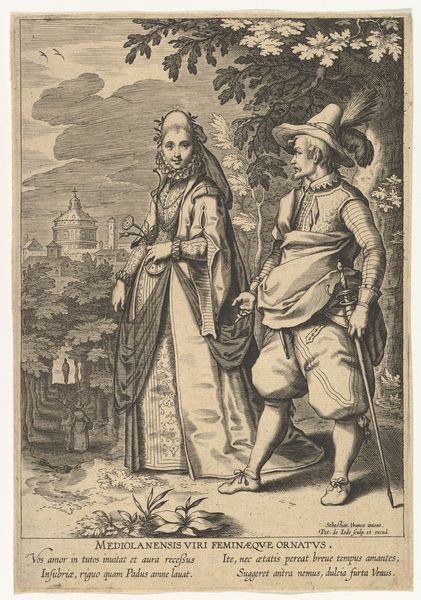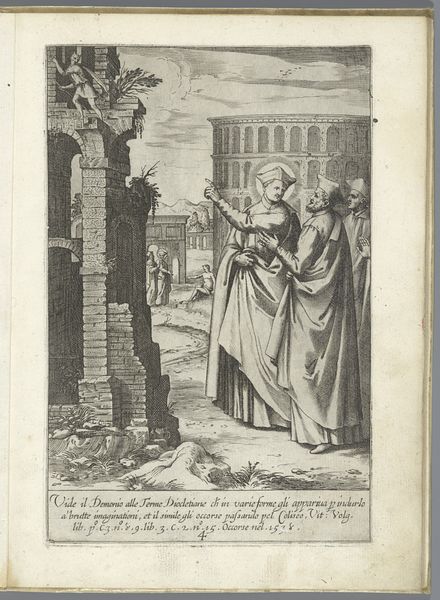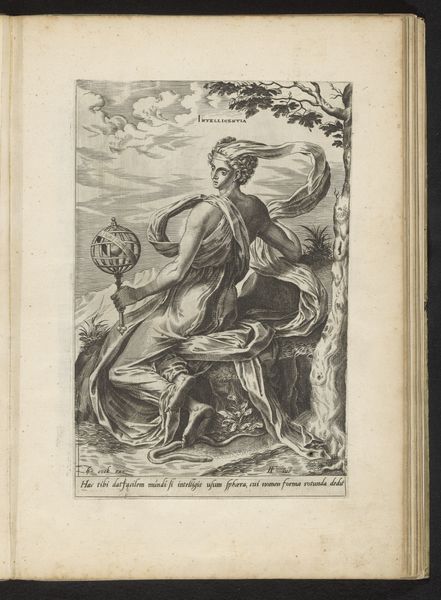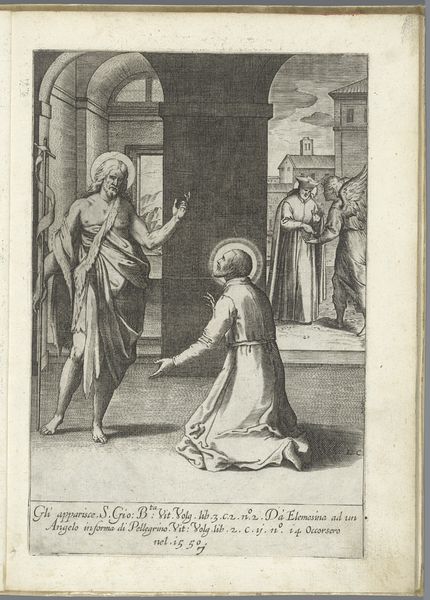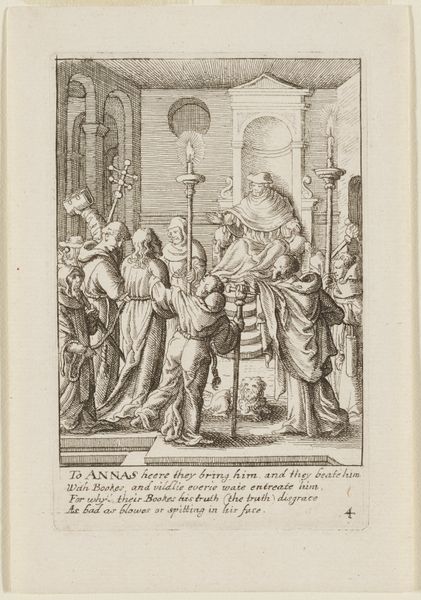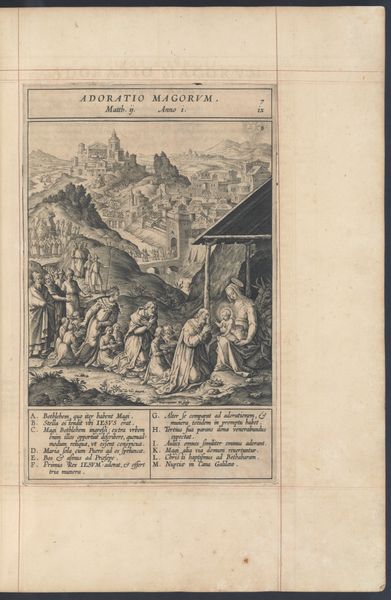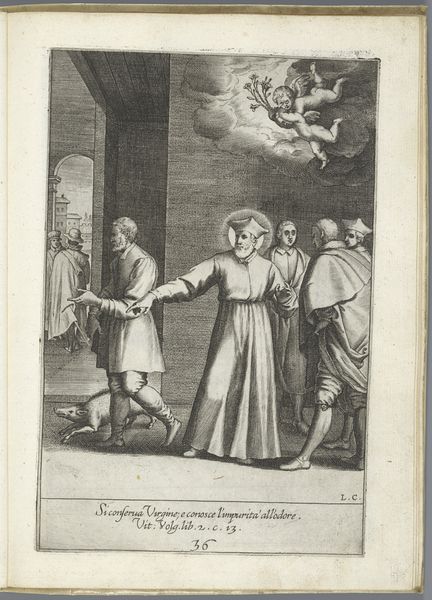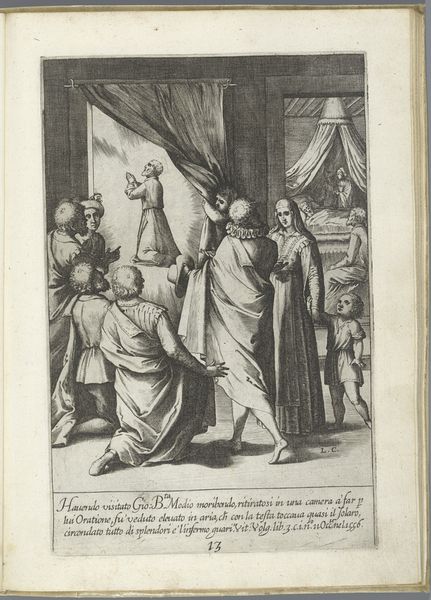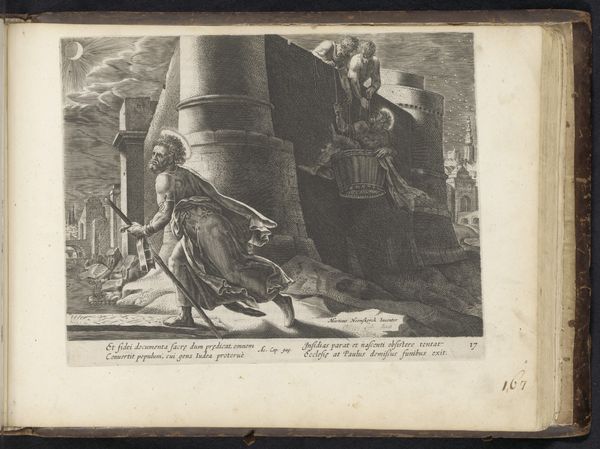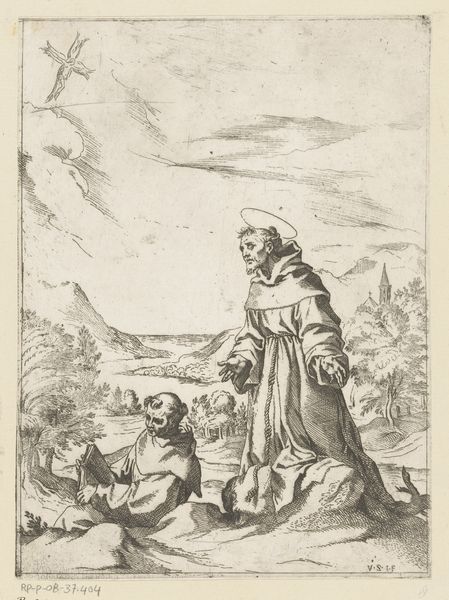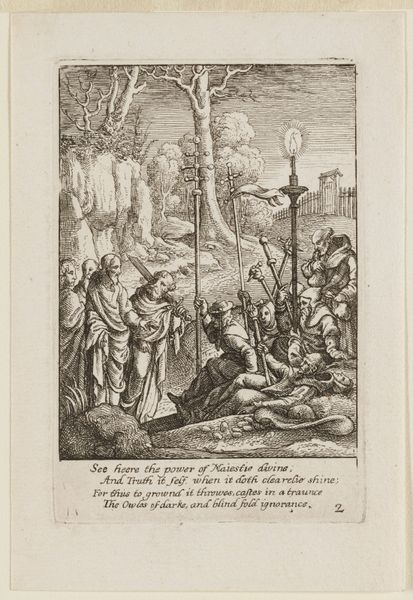
engraving
#
baroque
#
figuration
#
history-painting
#
engraving
Dimensions: height 228 mm, width 150 mm
Copyright: Rijks Museum: Open Domain
This engraving of ‘The Temptation of Filippo Neri’ was made by Luca Ciamberlano, an Italian printmaker, around the early 17th century. Engraving is a skilled subtractive process, where the artist uses a tool called a burin to carve lines into a metal plate. This plate is then inked and printed, transferring the design onto paper. Here, the contrast between light and dark is emphasized, achieved through the density and depth of the engraved lines. Look closely, and you can see how Ciamberlano has varied the marks to create texture and volume, such as in the robes of Filippo Neri and in the musculature of the demons that attempt to distract him from his path. Engraving like this required rigorous training, part of a much wider culture of workshops that flourished in early modern Europe. It was a painstaking, time-consuming process, and the resulting prints would have been relatively costly, bought by collectors or used for devotional purposes. By considering the labor and skill involved in its creation, we can understand this print not just as an image, but as an object embedded in a specific time and place.
Comments
No comments
Be the first to comment and join the conversation on the ultimate creative platform.
